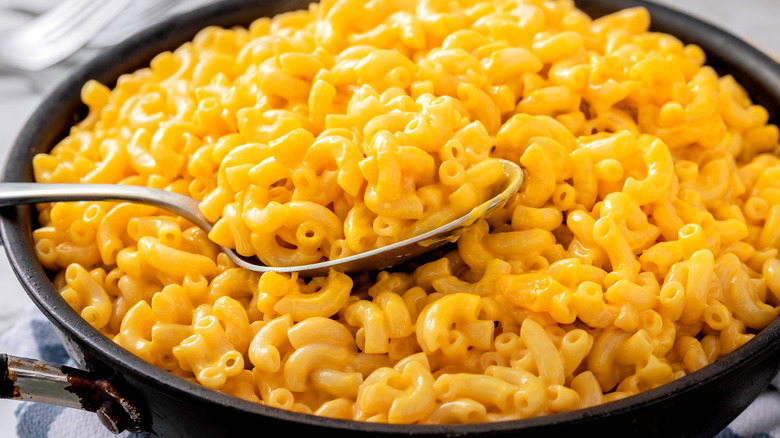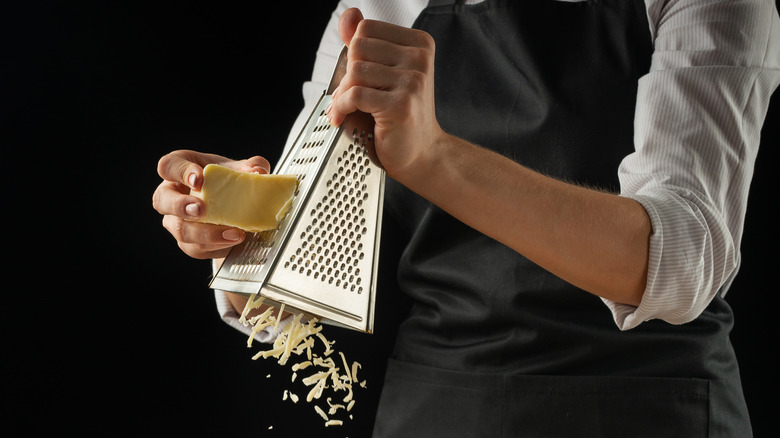The One Ingredient That Shouldn't Be In The Cheese You're Eating
Ah, cheese. What's not to love? Between sprinkling, melting, crumbling, grilling, baking, spreading, or simply snacking on it from a cheese board, it is one of the most savory and supple foods around.
If cheese is part of your daily diet, you're not alone. According to Statista, the average American consumed over 40 pounds of cheese in 2019. That's an increase of 5 pounds per person in 10 years. While eating too much cheese can lead to obesity, diabetes, and other health risks, it can promote bone health, gut health, and lower blood pressure when enjoyed as part of a balanced diet (via Medical News Today).
But what is cheese? According to Undeniably Dairy, natural cheese begins with 4 core ingredients — milk, salt, "good bacteria," and an enzyme called rennet. The "good bacteria" are an essential part of the cheese fermentation process called microbial fermentation, which evolved through the work of microbiologist Louis Pasteur, who studied microbes. Microbial fermentation helps to break down complex proteins and sugars in the milk, ultimately preserving the cheese and allowing it to be stored for long periods (via American Society for Microbiology).
While microbes used in natural cheese-making are harmless, there are ingredients in pre-packaged, processed cheese that could have a negative impact on your health.
Look for these ingredients in processed cheese
As much as boxed macaroni and cheese may conjure dreamy childhood memories, there's a good chance it contains manmade chemicals called phthalates, which affect our hormones. Phthalates help form the cheese powder in your boxed mac and cheese. They can also be found in countless non-food products, such as vinyl flooring, wall covering, and detergent.
While their precise impact on people remains unclear, studies have suggested that phthalates can cause developmental issues in children (via Today). In light of these findings, boxed macaroni and cheese manufacturer Annie's stated, "We continue to work with our trusted suppliers to eliminate ortho-phthalates that may be present in the packaging materials and food processing equipment that produces the cheese and cheese powder in our macaroni and cheese."
If you're a fan of sprinkling packaged shredded cheese into your homemade recipes, consider its ingredients. That packaged shredded cheese may include cellulose, calcium sulfate, or a different anti-caking ingredient to help prevent clumping. These are not only unhealthy, but may ruin the texture of your recipe. Shredded block cheese is a tastier and healthier option (via Eat This Not That).
While an occasional box of processed mac and cheese or a sprinkle of pre-packaged shredded cheese are likely harmless, it's always good to read the ingredients on the package. After reading the label, you may not feel like smiling and saying "cheese."


